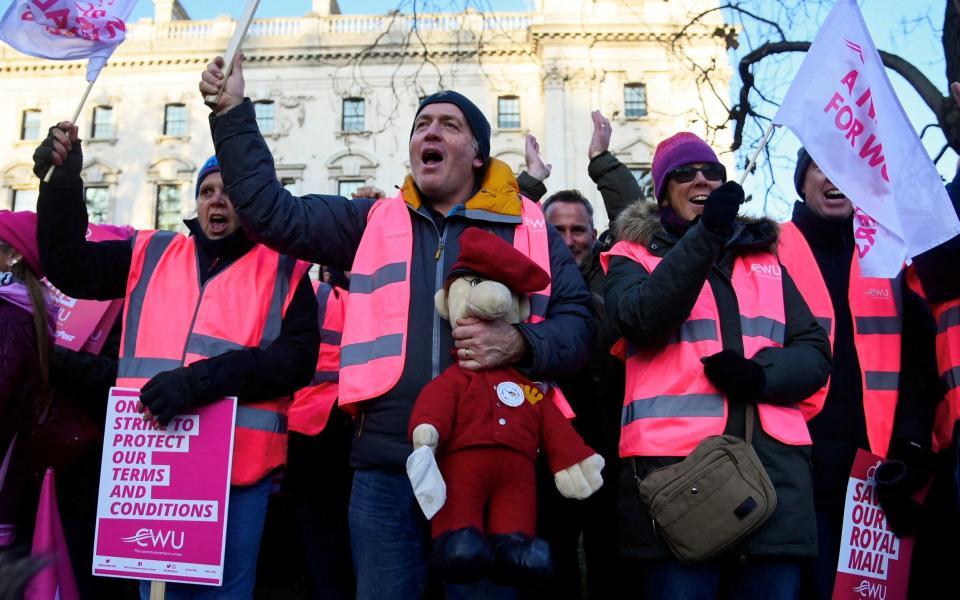Postmen to get 10pc pay rise as Royal Mail cuts deal with CWU

Postal union leaders have caved in and accepted a below-inflation pay rise after a year-long dispute with Royal Mail.
The Communication Workers Union (CWU) has accepted a 10pc pay rise across three years plus a £500 bonus lump sum.
For many of the union’s 115,000 postal workers, the deal is worse than a previously rejected offer of 9pc over 18 months.
The 10pc is broken down into 2pc backdated from April 2022, a 6pc rise from April 1, 2023, a 2pc increase from April 1, 2024 and a £500 lump sum bonus.
Spread over three years, the wage deal is significantly lower than inflation, the annual rate at which sits at 10.1pc.
The deal marks a climbdown by union chief Dave Ward after his former deputy Terry Pullinger, who stepped aside last summer, said that the CWU would only accept an “inflation-based, no-strings pay award” in July.
The CWU said that it had extracted a series of concessions from the Royal Mail board, led by former British Airways and John Lewis executive Keith Williams, in relation to reforms to working practices.
Dave Ward, CWU’s general secretary, claimed that the union had prevented Royal Mail from turning the business into a “gig economy employer” in a letter to members that was signed off with an anti-Thatcherite slogan.
Among the reforms demanded by Mr Williams and chief executive Simon Thompson was the need for postal workers to start work later so that deliveries could be spread throughout the day.
Royal Mail wanted an option to push back start times by up to three hours. Friday’s deal includes a one hour provision, a union concession that also seemed to be at odds with Mr Pullinger’s statements.
There is also a commitment on both sides to reopen talks over pushing starting and last delivery times back even further, with discussions due to restart in March 2024.
Some 20pc of the company's operating profit will be paid to workers if it returns to the black.
Although Royal Mail will still make around 10,000 redundancies, there will be no compulsory redundancies before April 2025.
A spokesman for the CWU said: “This situation has been arrived at only because of the sheer determination of every postal worker in this country who stood up for themselves, their jobs and their industry.
“We intend to put this deal to our members’ vote as soon as possible.”
The letter from CWU general secretary Dave Ward to union members was signed off “Yma O’Hyd” – a reference to Welsh language folk song by Dafydd Iwan that became synonymous with Welsh miners strikes against Margaret Thatcher in the 1980s.
The year-long dispute culminated in 18 days of strike action in the second half of 2022 with ugly scenes on the picket lines as tensions boiled over.
A spokesman for Vesa, Royal Mail's largest shareholder said: “Vesa welcomes the agreement that has been reached in principle between IDS and the CWU. The Royal Mail needs a stable framework to best serve its customers and excel in the quality of service and innovation.
“This agreement provides exactly such a stable framework and should be applauded. Building a strong, competitive Royal Mail is in the best long-term interests of the company, its employees and those millions of customers across the UK who rely on its services, and we thank negotiators from IDS and the CWU for their hard work in getting to this point.”

 Yahoo Finance
Yahoo Finance 